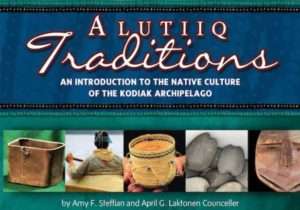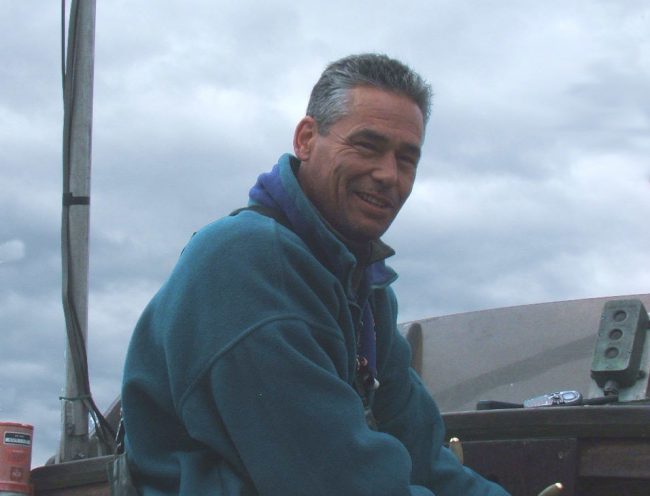 The Alutiiq Museum has released the fourth edition of its popular Alutiiq Traditions book. Written by staff, this paperback publication provides accessible one-page lessons on Alutiiq culture, language, and history.
The Alutiiq Museum has released the fourth edition of its popular Alutiiq Traditions book. Written by staff, this paperback publication provides accessible one-page lessons on Alutiiq culture, language, and history.
The new edition is updated with current information and new topics. It was supported by grant funds from the Institute for Museum and Library Services and the Exxon Valdez Oil Spill Trustee Council.
According to Alutiiq Museum Executive Director April Laktonen Counceller, the book was developed in response to visitor questions. She said, “Our staff found themselves answering similar questions from many people, especially in the museum’s early years. There were few accessible publications on Alutiiq heritage and people were hungry to learn about everything from petroglyphs to hunting traditions. So, the museum created a set of handouts. We eventually turned these sheets into a small book. The first edition was published about 2006.”
Since that first publication, the museum has expanded Alutiiq Traditions to cover additional topics. The fourth edition, released this month, features thirteen new lessons. Some fill gaps in the coverage of cultural topics. There are new lessons on fishing, a page on healers and shamans, and a discussion of naming practices. Other lessons reflect the museum’s effort to share the social and economic forces that have shaped the Alutiiq community. Counceller explained.
“In the museum’s early years, we focused on teaching about Alutiiq culture, particularly our ancestors’ way of life. But we don’t just want to talk about the past. We want to provide a full and accurate view of recent history and illustrate how Alutiiq ways of living continue. That includes looking honestly at the colonial era.”
To support this effort, the book includes lessons on the history of Native education, the impacts of epidemics, blood quantum laws, repatriation, the region’s tribes and Native corporations, and more. “We’ve learned that people like resources that help them continue learning from home. Visitors enjoy our exhibits, but they want more time to explore. Online resources and publications are popular for this reason, and they help us share important messages,” said Counceller.
The museum will distribute copies of Alutiiq Traditions to schools, libraries, tribes, and community organizations, and include pages from the publication in its traveling education boxes. Individual lessons can also be downloaded for free from the publication page of the museum’s website. The complete book can be purchased from the Museum Store for $15.00, online or in the gallery.
The Alutiiq Museum is a non-profit organization dedicated to preserving and sharing the history and culture of the Alutiiq, an Alaska Native tribal people. Representatives of Kodiak Alutiiq organizations govern the museum with funding from charitable contributions, memberships, grants, contracts, and sales.
###[content id=”79272″]








